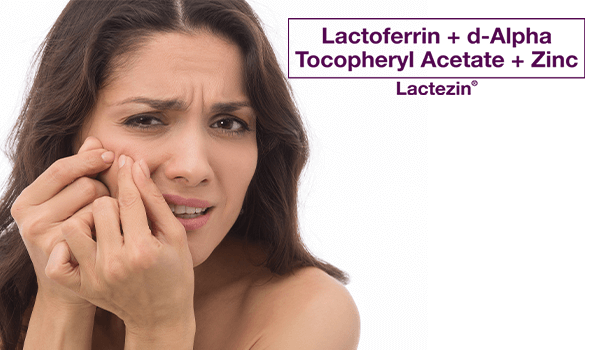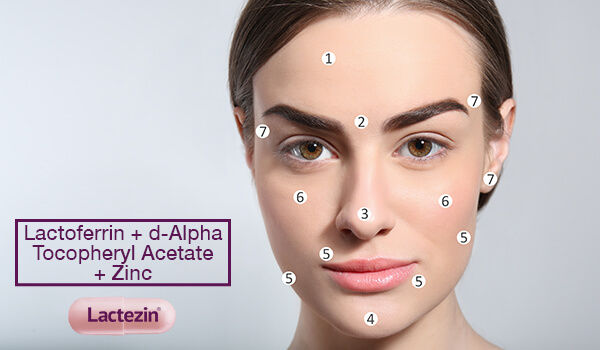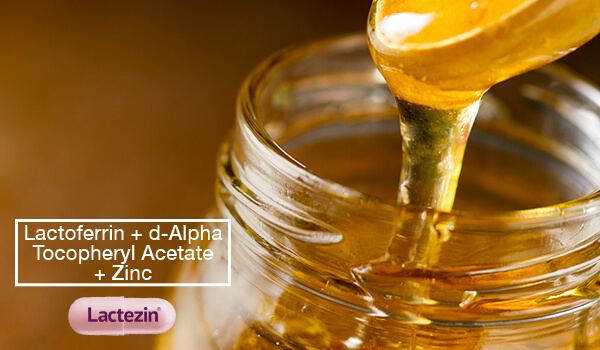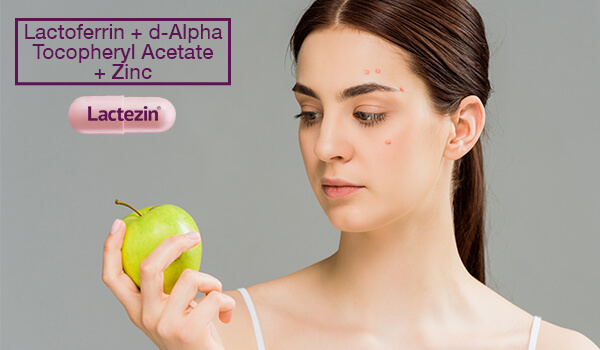Acne In Your 40's: Here's Why You May Be Getting Them

You might have asked yourself, the moment you see terrible skin breakouts, why you’re getting acnes when such pesky skin condition is normal and expected for teenagers and young adults. Well, here’s the thing and we’re sorry to burst your bubble: acne happens to everybody.?
Life begins at 40 — or so they say. It’s that age when you feel like you’ve been there, done that, survived those, and can confidently face anything that comes. Partly true, but maybe not with acne. That’s because acne knows no age. Certain skin conditions happen to anyone, depending on various factors like diet, hormonal imbalance, lowered skin defense, and environment to name a few. So if you’re one of the 40-something individuals who experience acne, know that there are certain causes for it.?
Hormones
Hormonal imbalance is one of the primary reasons for adult acne. When you reach the age of 40, you start experiencing chemical changes in the body that are tantamount to manifest through skin conditions. Fluctuating hormones amongst males and females create changes in the skin’s environment. For females, increase in production of progesterone which happens after ovulation makes the skin’s oil glands go awry. Likewise, for males, androgens also trigger oil production. This often leads to overproduction of sebum, pH imbalance, and skin inflammation. More often than not, these changes happen during menopause, perimenopausal period, breastfeeding, pregnancy, and after giving birth.?
Clogged Pores
Environmental pollutants easily come into contact with your skin, subjecting it to toxins that clog pores. Once clogged, toxins can cause inflammation, leading to acne that dries out the skin. Skin then loses elasticity causing it to age prematurely. Aside from environmental pollutants, anything that you put on your face can clog the pores. Women especially who put on make-up and are too busy to do a very thorough skin cleanse are more prone to clogged pores that trap excess oils and dirt, all leading to skin-aging inflammation. That’s why skin experts recommend oil-free, non-comedogenic facial products.?
Bacteria
Bacteria and viruses are foreign invaders that trigger skin inflammation. Inflammation is actually the skin’s first line of defense against these invaders. However, excessive and chronic inflammation brought about by bacteria can cause acne and skin aging. The usual manifestations are skin sensitivity, redness, and irritation. That’s why it is often advised to not touch your face and keep your hair away from your face as these can be potential ways for bacteria to get to your skin. Acne however isn’t always about poor hygiene. It also happens when there’s a buildup of bacteria called Propionibacterium that accumulate underneath the skin and can’t be easily washed off through regular washing. When this happens, skin gets inflamed resulting to acne which leads to skin aging.
Birth Control Pills
There are two sides to the story. Some women claim that using birth control pills help them control their acne. Others however say that birth control pills make the skin condition worse. Results can be relative, which is why at the end of the day, regardless of age, you still need a good skin care routine.?
Stress
Emotional stress is common to everyone, regardless of age. Adults who take on loads of responsibilities inevitably experience anxiety and pressure brought about by demands of the society. When stress button is triggered, the adrenal glands produce cortisol known as the stress hormone. Research says cortisol can be produced in hair follicles and in various types of skin cells. Cortisol causes imbalance on skin, leading to acne.?
Diet
Not so good news for those who have sweet tooth: chocolates and nuts do have that bad rep for causing acne. Although no much has been written about it, there have been claims that excessively sugary and oily foods trigger skin breakouts like acne. This is especially true when glycation happens. This is when excess sugars in the skin link to skin proteins like collagen and elastin fibres. The result: collagen and elastin fail to function normally. Skin loses its regenerative and healing ability, leading to acne and skin aging. Another popular favorite amongst adults are alcohol and coffee. Both are known diuretics that can cause dehydration when consumed excessively. Skin dehydration dries out the skin, causing it to inflame easily, lose elasticity, and age prematurely.?
Health conditions
For some, acne can be a physical manifestation of an existing health condition. One example would be older women with diagnosed PCOS (polycystic ovarian syndrome) characterized by irregular periods and weight gain. Often, PCOS also causes acne because of hormonal fluctuations. Plus, if you are being treated with medications that contain corticosteroids, lithium, or androgens, there’s a possibility of having acne as a side effect.?
Lifestyle
Adulthood comes with a set of daily routines that are usually hard to break. Through the years, they have been ingrained in an individual’s lifestyle and the accumulated effects manifest on the skin’s natural defenses. Lack of sleep, in particular, is a major culprit because it denies the body to heal naturally. Likewise, smoking depletes the body of nutrients needed to boost the skin’s immunity. Too much alcohol dehydrates the skin, making it prone to acne and skin aging. Note too that women who do intense or too frequent skin cleansing unknowingly wreak havoc on their skin. Cleansing for more than two times a day usually dries out the skin, making it produce more oil to compensate for the dryness. Thus, those with existing acne will only make the skin condition worse. The same applies for over exfoliation. Exfoliating for more than three times a week tend to exacerbate acne. Skin experts recommend gentle skin cleansers and exfoliants (those containing lactic acid) over scrubs or brushes. ?
To combat adult acne, it’s best to boost the skin’s natural defenses against inflammation, skin-damaging free radicals, and overproduction of sebum. Lactoferrin, a natural iron-binding protein, has potent antioxidant properties that help repair damaged skin cells and reduce acne. It enhances production of new skin cells and makes skin healing faster.
Lactoferrin + d-Alpha Tocopheryl Acetate + Zinc (Lactezin) can help fight adult acnes. Taken twice daily, Lactoferrin + d-Alpha Tocopheryl Acetate + Zinc (Lactezin) may help treat acne and may also improve complexion in as early as 2 weeks.
Lactoferrin + d-Alpha Tocopheryl Acetate + Zinc is the generic name of Lactezin. If symptoms persist, consult your doctor.


